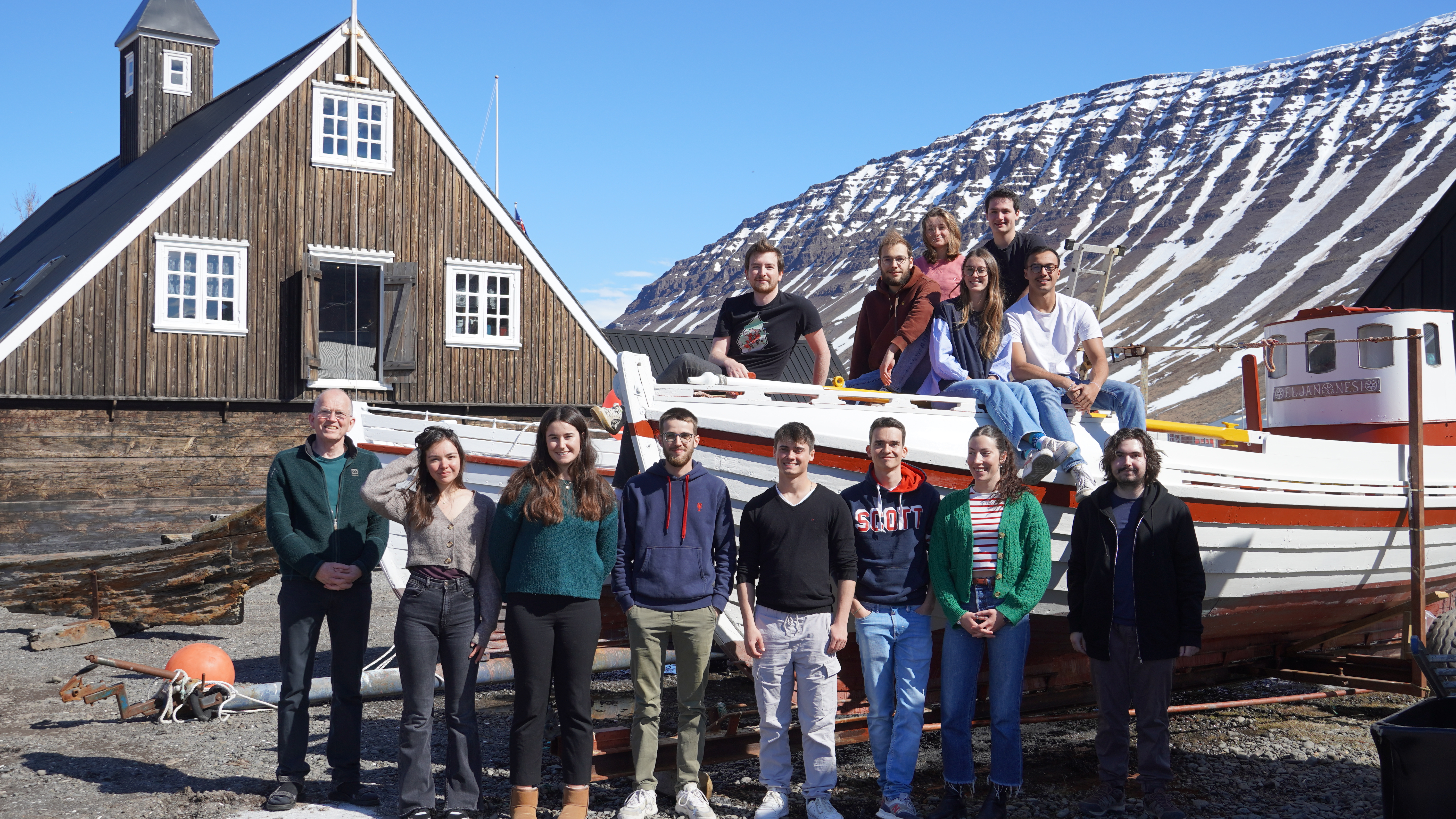French interns at UW explore changes in the Icelandic sea
There have been many new faces at UW in the past few days. 13 students from SeaTech, the French school of engineering, are interns at UW for a total of 17 weeks. The interns are master’s students in marine engineering and are undergoing training here under the guidance of Björn Erlingsson.
Interns from Toulon have been coming to UW since 2015. This year, they are more than usual, and 13 interns in one semester correspond to four to five full-year students at UW. Up until now, it would have been difficult to accommodate such a large group, but the newly built UW’s student housing creates more possibilities.
The interns this year will work on technical issues related to oceans and coastal areas. They will work on projects related to changes in the sea around Iceland and will develop methods for the integration of data from different systems that will increase usability, analysis and insight into the consequences of these changes in Iceland's waters. The projects are diverse and will rely on data processing, dissemination and modelling of an oceanographic nature.
Seawater: Temperature and salinity
The interns will look at the temperature and salinity of the sea that are characteristic of the ocean type, such as the Atlantic Ocean, the Polar Sea and the Greenland Sea. The interns will highlight how temperature and salinity have a formative effect on the living conditions in the ocean. They will develop an audio and visual representation of the sea types that increases understanding and insight into their mixing and movement. The interns therefore deal not only with calculations, but also with the presentation of data so that the public can understand them. It is important that engineers learn to present their findings to the public in order for them to make informed decisions.
Primary productivity of plankton
Another interesting project that the interns will work on is looking at the primary productivity of plankton. Primary productivity is the formation of organic substances during photosynthesis on the surface of the ocean, similar to the photosynthesis of land plants. The primary productivity in plankton depends on the mixing of nutrients, but climate change can affect this mixing. To study the primary productivity, the interns will use and analyze the results from physical and ocean chemical models of the primary productivity of plankton. The data is based on the Copernicus Marine Environmental Monitoring System, which is done by the leading scientific institutions in their respective fields, and the Copernicus program applies active data quality control and continuous improvement of computational models as measurements in the ocean increases and knowledge advances. Previous groups of interns from SeaTech Toulon have worked on modeling where it was possible to assess the primary productivity of plankton, etc. sea temperature, mixing, stratification, currents and sea level.
Fishing experience and fish stocks
The third project is related to fishing experience and fish stocks. An analysis will be made of the possible relationship between the recorded fishing experience of previous years and the different growth conditions of fish stocks that follow the physical and chemical factors of the ocean as they appear in the official data of the Copernicus Institute. There is a large amount of data on the fishing experience around Iceland, but what can be done with this data? If it is possible to put this data in context with models as they appear in the public data of the Copernicus Foundation and show the state of the ocean at any given time, it is possible to better predict the growth conditions of fish stocks.
Sea ice
The fourth project is about sea ice in the Arctic Ocean. The interns will develop methods for processing measurements of the sea ice to determine fracture resistance and pressure in polar ice and use that information in physical models for the growth and decline of sea ice thickness and extent. A few years ago, Björn Erlingsson managed to get a US Army research plane to UW to take aerial photographs of sea ice with the aim of being able to demonstrate how the ice forms and under what conditions it breaks and disappears. This is an important point in predicting the effects of climate change, but it is equally important for ship traffic in areas with sea ice.

The goal of the four projects mentioned above is that the services that will be developed, will contribute to a richer sharing of information and bring forth new knowledge and insight when information from different systems of the environment, fishing and society is combined. The projects will be done in collaboration.
The projects will be carried out in collaboration with various parties. If a company in the Westfjords is interested in hosting an intern, UW can assist in finding a student and solving formalities. We look forward to seeing the work of the interns and sharing their progress.
